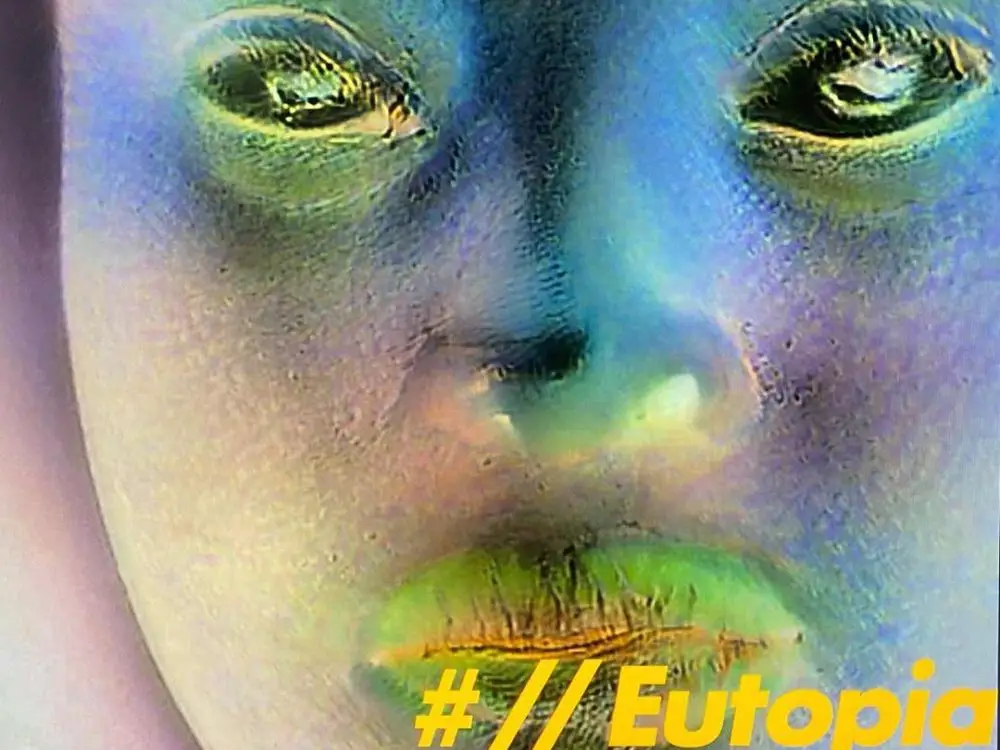With natural disasters, racial injustice, economic disparity and a global pandemic all at the forefront of 2020, the purpose of art within current events remains heavily debated. Can brushstrokes, notes, pictures and letters act as “a hammer with which to shape [reality],” inciting real, tangible change? At a time when silence is no longer an option, Massive Attack’s “Eutopia” EP answers with a firm “yes.” By pairing academic speeches with original music tracks and hypnotic visuals, each song in “Eutopia” attracts listeners with style while delivering pertinent, progressive messages about the issues we face today.
The socio-political nature of “Eutopia” is far from unordinary for Massive Attack. Apart from shaping the trip-hop genre, the band has also been defined by their involvement in different activist movements. From opposing the Iraq War to supporting Black Lives Matter protests, Massive Attack’s unwavering devotion to advocacy has also pervaded their discography. An audio-visual performance not unlike “Eutopia” was featured in their 2016 European tour: Photos of migrant refugees were projected on a 30-foot tall screen at the end of the show, highlighting the human faces of an ongoing humanitarian crisis. Massive Attack’s Robert “3D” Del Naja recalled in an interview the difficulty of conveying these themes: “It’s a kind of balancing act; you don’t want to be sort of relentlessly battering people over the head with facts when, after all, they’re coming here to be entertained, apparently.”
So, what makes “Eutopia” a distinctive part of Massive Attack’s musical history? Whereas the European tour concerned itself with the digestibility of its social commentary, “Eutopia” is hell-bent on making its messages undeniably clear. Large, capitalized letters title each of its three tracks, respectively: “#CLIMATEEMERGENCY,” “#TAXHAVENS” and “#UNIVERSALBASICINCOME.” With these titles, the EP essentially states, “Here are the issues at hand — what we need to overcome if we wish to reach a utopian future.”
An Overview
Within each song is a spoken word piece from an expert in the track’s subject matter, detailing the titular problem and presenting potential solutions (with the exception of #UNIVERSALBASICINCOME, which is portrayed as a solution to economic disparity). These performances take center stage in their respective music videos, which provide bold lettered “lyrics” in order to follow along with the spoken words. However, the melodies and background visuals of “Eutopia” are far from forgettable. The EP’s amalgam of sight and sound forms a dystopian, yet hopeful attitude that simply could not be articulated through words alone.
Also included in the “Eutopia” videos are relevant quotes from Thomas More’s novel, “Utopia,” and the geographic coordinates of the featured speakers at the time of recording. Considering that “Eutopia” was created during the height of many shelter-in-place laws and travel restrictions, these aptly titled “lockdown locations” not only illustrate how the current COVID-19 crisis impacted Massive Attack’s project, but also how each of the issues extends beyond borders and affects the world collectively, regardless of nationality or location.
#CLIMATEEMERGENCY (ft. Algiers & Christiana Figueres)
The first track of “Eutopia” sets an alarming tone for the rest of the EP — literally. A repeating, siren-like drone emphasizes the “emergency” in “#CLIMATEEMERGENCY,” changing tone as a deep, bassy beat introduces the track’s speaker: Christiana Figueres, former executive secretary of the United Nations Convention on Climate Change and Paris Agreement.
With a title like that, one may expect Figueres to dive straight into the specifics of climate change, but she begins with a more holistic view of the world’s problems at large: “Before the COVID-19 crisis … governments were already facing the convergence of the climate crisis, the inequality crisis and the oil price crisis.” While Figueres and the speakers in subsequent tracks go on to detail crises within their field of expertise, they all begin from this larger perspective, emphasizing the common ground between all the issues covered in “Eutopia.”
The visuals of “#CLIMATEEMERGENCY” reflect the dire attitude established by its melody, showcasing a series of pulsating skulls that appear to degrade and re-form to the beat of the song. As Figueres mentions the negative effects of fossil fuels “polluting our lungs and loading our atmosphere,” the skulls present a dynamic and inescapably poignant portrait of that unhealthiness.
That isn’t to say the entire song retains such an apocalyptic outlook. The last third of Figueres’ statement presents the current crisis as an opportunity for the human race to rise to the occasion, and this revelation is accompanied by a series of vocals that overpower the mechanical “alarm” sounds from the beginning, if only for a few brief moments. The closing “Utopia” quote seemingly recognizes the small chance of global solidarity against climate change: “There is never any shortage of horrible creatures who prey on human beings, snatch away their food, or devour whole populations; but examples of wise social planning are not so easy to find.”
#TAXHAVENS (ft. Saul Williams & Professor Gabriel Zucman)
Featuring UC Berkeley economics professor Gabriel Zucman, “#TAXHAVENS” operates with the same general format established by “#CLIMATEEMERGENCY,” just with a few minor adjustments. For instance, Zucman’s speech begins with a specific focus on dismantling tax havens, as opposed to the more holistic opening of Figueres’ song. “#TAXHAVENS” is also the first track in “Eutopia” to include a lyrical background track, which adds an emotional layer of commentary to Zucman’s already sobering statistics: “Countries … [losing] 20% of their corporate tax revenues [to tax havens]…”
Even if listeners become overwhelmed by economic lingo, lyrics like “can not feel love on the market” underline the core ideas of “#TAXHAVENS,” cutting through the denser portions of Zucman’s spoken word segments. Accompanied by a drone that slowly descends in pitch, these musical attributes combine to sow feelings of suspicion in the listener. The deceptive nature of tax havens is also personified through several non-musical motifs: sounds of water sloshing in the song’s opening, indicating something “overseas” and distant, for example. The visuals of “#TAXHAVENS” echo the same enigmatic feel, warping a map until it appears unrecognizable and glitchy.
The pacing of Zucman’s speech (and the other speakers’ as well) is helpful in not overwhelming listeners with information all at once. Rhythm is present in every aspect of “Eutopia,” including the spoken word, and these speeches are broken up to loosely fit within the beat of their background instrumentals. Notably, “#TAXHAVENS” also contains nearly a full minute of music without any of Zucman’s theses laid over it, which allows listeners one last chance to reflect on the song’s lyrical themes and their broader implications.
“#UNIVERSALBASICINCOME” (ft. Young Fathers & Professor Guy Standing)
“We, we, we all wanna live,” repeats “#UNIVERSALBASICINCOME.” These lyrics by the Young Fathers accent the core arguments made by Professor Guy Standing, co-founder of the Basic Income Earth Network (BIEN). Of all three songs in “Eutopia,” this final installment feels the most hopeful — a long-form version of its predecessors’ final respective statements.
Nowhere in the visuals of “#UNIVERSALBASICINCOME” are there any depictions of decay or deception. Instead of rotting skulls or glitched landscapes, human faces of all ages, genders and races perpetually morph into one another in a continuous loop, demonstrating how truly alike all humans are, regardless of biological and physical attributes.
Musically, there are more rising tones in “#UNIVERSALBASICINCOME” than the other tracks, providing a less pessimistic atmosphere with its softer electronic elements. The vocals undoubtedly lower in pitch throughout the piece, but they also rise just as frequently, occasionally breaking into melodic, energizing chants. The up-and-down nature of the vocals reflects the lyrics, which almost sound like a debate over the pros and cons of universal basic income: “I don’t want your pain” and “You should go your own way” are matched by assertions of “We, we, we all wanna live,” and simply, “Give, give, give…”
Much like Zucman before him, Standing spends a large portion of his speech elaborating on the promising aspects of his proposal. As Standing’s closing words, “[a basic income] can — and must — be done,” disappear from the screen, Massive Attack leaves their listeners with a harmonious barrage of electronic notes that ascend briefly before fading away entirely. The ideas of “Eutopia” are yours now.
The Purpose of “Eutopia”
Scroll down on any one of the “Eutopia” tracks on YouTube, and you’re bound to come across comments demanding an instrumental version of the EP. It’s unlikely that we’ll ever receive one. “Eutopia” appears to counter 3D’s original concerns with the “balancing act” of entertainment value and social commentary. Sure, there is still a balance present — the musical components of “Eutopia” obviously stand on their own — but the scales are now tipped toward the political. Yes, the speeches overpower the music in the mix, but that’s the point. The current circumstances — outlined within the EP itself — require a louder voice. It’s hard to be a “Eutopia” without a message.

















